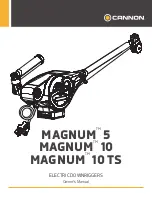
4-2
F-1090-1120
OPERATION AND MAINTENANCE
Hydraulic Lift System
The Field Cultivator is equipped with a rephasing
hydraulic lift system to raise and lower the unit in the field.
Figure 4-1: Hydraulic Leak Detection
WARNING
Figure 4-2: Transport Lock Locations
1.
The rephasing hydraulic lift system contains smaller
wing frame cylinders plumbed in series with larger
center frame cylinders. It is important that the
cylinders be connected in the proper series for the lift
system to operate correctly. When the cylinders are
fully extended and held in this position, oil is able to
flow through the cylinders (or rephase) and allow the
cylinders to operate in sync. This also allows the
system to purge any air that may enter the system
without having to loosen or crack hydraulic lines.
2.
The hydraulic system is not filled with oil and should
be purged of air before transporting and field
operations. Carefully hitch the Field Cultivator to the
tractor and connect the hydraulic lift hoses. Check to
make sure the tractor hydraulic reservoir is full of the
manufacturer’s recommended oil. Slowly raise the
machine, and continue to hold the hydraulic lever
until all lift cylinders are fully extended. With all
cylinders fully extended remove the transport locks
Lower and raise the unit to verify that
all cylinders are working simultaneously throughout
the stroke. If the cylinders are not working evenly or
together, fully extend the lift cylinders and continue to
hold the lever to purge any remaining air. Do not
loosen any hoses or fittings. Recheck tractor
reservoir to make sure it is within operating limits.
3.
Always fully extend the cylinders and hold the lever to
ensure the cylinders are rephased before starting
any field operation. This will keep all cylinders in time
and frame sections level when operating.
4.
Servicing – Before servicing any hydraulic
component, lower the implement to the ground and
relieve all system pressure. If a hydraulic component
is disconnected, repaired, or replaced, it will be
necessary to purge the system of air before
operation.
NOTE
If performing service or repair work, lower the machine
down to the ground and relieve hydraulic pressure.
Escaping hydraulic fluid can cause serious
personnel injury. Relieve system pressure before
repairing, adjusting, or disconnecting. Wear
proper hand and eye protection when searching
for leaks. Use cardboard instead of hands
. Keep all components (cylinders,
hoses, fittings, etc.) in good repair.
TRANSPORT
LOCK (STORED
LOCATION)
TRANSPORT
LOCK (INSTALLED
LOCATION)
Summary of Contents for 9650FH
Page 15: ...STANDARD SPECIFICATIONS 2 7 Table provided for general use NOTES ...
Page 19: ...STANDARD SPECIFICATIONS 2 11 Table provided for general use NOTES ...
Page 23: ...STANDARD SPECIFICATIONS 2 15 Table provided for general use NOTES ...
Page 27: ...STANDARD SPECIFICATIONS 2 19 Table provided for general use NOTES ...
Page 31: ...STANDARD SPECIFICATIONS 2 23 Table provided for general use NOTES ...
Page 35: ...STANDARD SPECIFICATIONS 2 27 Table provided for general use NOTES ...
Page 39: ...STANDARD SPECIFICATIONS 2 31 Table provided for general use NOTES ...
Page 43: ...STANDARD SPECIFICATIONS 2 35 Table provided for general use NOTES ...
Page 47: ...STANDARD SPECIFICATIONS 2 39 Table provided for general use NOTES ...
Page 51: ...STANDARD SPECIFICATIONS 2 43 Table provided for general use NOTES ...
Page 55: ...STANDARD SPECIFICATIONS 2 47 Table provided for general use NOTES ...
Page 59: ...STANDARD SPECIFICATIONS 2 51 Table provided for general use NOTES ...
Page 63: ...STANDARD SPECIFICATIONS 2 55 Table provided for general use NOTES ...
Page 67: ...STANDARD SPECIFICATIONS 2 59 Table provided for general use NOTES ...
Page 71: ...STANDARD SPECIFICATIONS 2 63 Table provided for general use NOTES ...
Page 75: ...STANDARD SPECIFICATIONS 2 67 Table provided for general use NOTES ...
Page 79: ...STANDARD SPECIFICATIONS 2 71 Table provided for general use NOTES ...
Page 83: ...STANDARD SPECIFICATIONS 2 75 Table provided for general use NOTES ...
Page 87: ...STANDARD SPECIFICATIONS 2 79 Table provided for general use NOTES ...
Page 91: ...STANDARD SPECIFICATIONS 2 83 Table provided for general use NOTES ...
Page 95: ...STANDARD SPECIFICATIONS 2 87 Table provided for general use NOTES ...
Page 115: ...ASSEMBLY INSTRUCTIONS 3 17 Table provided for general use NOTES ...
Page 118: ...3 20 F 1090 1120 ASSEMBLY INSTRUCTIONS Table provided for general use NOTES ...
Page 122: ...3 24 F 1090 1120 ASSEMBLY INSTRUCTIONS Table provided for general use NOTES ...
Page 126: ...3 28 F 1090 1120 ASSEMBLY INSTRUCTIONS Table provided for general use NOTES ...
Page 130: ...3 32 F 1090 1120 ASSEMBLY INSTRUCTIONS Table provided for general use NOTES ...
Page 135: ...ASSEMBLY INSTRUCTIONS 3 37 Table provided for general use NOTES ...
Page 151: ...OPERATION AND MAINTENANCE 4 3 Table provided for general use NOTES ...
Page 163: ...OPERATION AND MAINTENANCE 4 15 Table provided for general use NOTES ...
















































